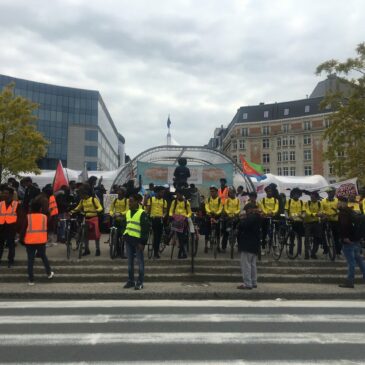News Highlights: Crimes in Darfur continue, Brussels Demonstration demands protection in Libya, IOM’s return scheme puts refugees at risk
In this week’s news highlights: Hundreds of refugees demonstrate against entrapment and abuse in Libya; Mare Jonio and Sea Watch 3 boats to resume work at the end of May; Conference on democracy in Eritrea hits a nerve; Appointments for asylum in Greece set in 2023 – system is overloaded; Refugees in Europe live longer but are more traumatised, states report; EU planning a conference on Horn of Africa economic development; Religious freedom in Eritrea and Sudan; RSF still perpetrates crimes and violence in Darfur; Corruption in South Sudan; Refugees at risk over ‘voluntary’ return from Libya; Sudanese people refouled to Libya die in Meditteranean sea; One in three died along the central Mediterranean route in 2019.



